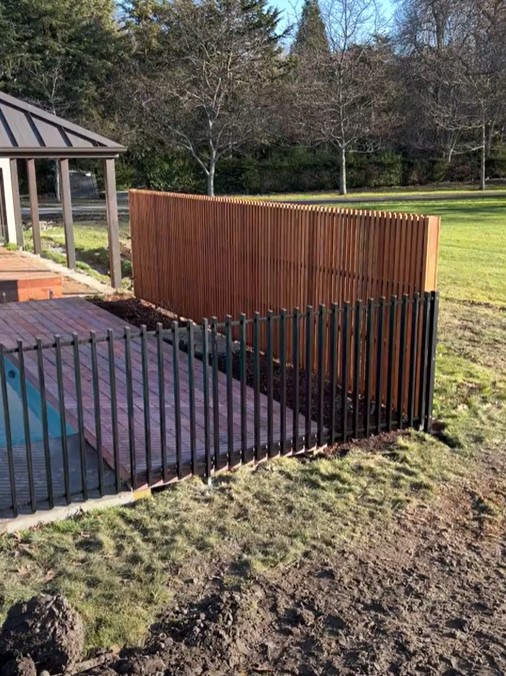Pool fencing in Christchurch plays a crucial role in safeguarding both children and pets, while also enhancing property value. However, regular maintenance is essential to maintain its effectiveness and ensure compliance with local regulations.
This article will explore key aspects of pool fencing maintenance in Christchurch, providing practical tips and advice for homeowners.
The Importance of Regular Maintenance
Christchurch’s unique climate, characterised by frequent rain, strong winds, and occasional earthquakes, can pose significant challenges to pool fencing.
Neglecting maintenance can lead to deterioration, safety hazards, and costly repairs. By following a consistent maintenance routine, homeowners can prolong the lifespan of their pool fencing and ensure its continued effectiveness.
Cleaning and Maintenance
Regular Cleaning:
- Remove debris, leaves, and dirt from the fence regularly to prevent algae growth and staining.
- Use a gentle detergent and soft brush for cleaning, avoiding harsh chemicals that can damage the material.
- Pay particular attention to areas around the pool gate and hinges, as these are prone to wear and tear.
Pressure Washing:
- Pressure washing can be an effective tool for removing stubborn dirt and grime. However, use caution to avoid damaging the fence.
- Opt for a low-pressure setting and maintain a safe distance from the fence to prevent water from penetrating the joints or causing damage.
Rust and Corrosion:
- Rust and corrosion can weaken the structural integrity of pool fencing.
- Inspect the fence regularly for signs of rust and address it promptly. Use a wire brush to remove rust and apply a rust-preventative coating.
Treating Timber Fencing:
- Timber fencing requires regular treatment to protect against rot, pests, and weathering.
- Apply a wood preservative every two to three years, following the manufacturer’s instructions.
- Consider using a water-based preservative for a more environmentally friendly option.

Repairs and Troubleshooting
Common Repairs:
- Loose or damaged panels can be repaired or replaced to ensure the fence’s structural integrity.
- Faulty gates and latches should be addressed promptly to prevent unauthorised access to the pool.
- Broken posts or rails may require professional assistance to repair or replace.
DIY Repairs vs. Professional Help:
- While some minor repairs can be tackled by homeowners, more complex issues may require the expertise of a professional.
- Factors to consider when deciding whether to hire a contractor include the extent of the damage, your DIY skills, and the complexity of the fence design.
Troubleshooting Issues:
- Sagging fences, pool gate malfunctions, and leaning fences are common problems that can be addressed with appropriate maintenance.
- Inspect the fence regularly for signs of wear and tear and take corrective action as needed.
Inspections and Safety
Regular Inspections:
- Conduct regular inspections of your pool fencing to identify potential hazards and address them promptly.
- Pay attention to posts, rails, gates, and hardware for signs of damage or deterioration.
Safety Checks:
- Ensure that the fence is child-proof and complies with local regulations.
- Check for any sharp edges or protruding objects that could pose a risk.
- Test gate latches and locks to ensure they are functioning properly.
Addressing Safety Concerns:
- If you identify any safety issues, immediately address them.
- Consider consulting with a professional fence installer for advice on repairs or modifications.
Maintaining pool fencing in Christchurch is essential for safety, compliance, and preserving property value.
By following these maintenance tips and conducting regular inspections, homeowners can ensure that their pool fencing remains in excellent condition for years to come.
If you have any concerns or require professional assistance, don’t hesitate to contact a reputable fence installer in Christchurch.